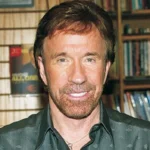
Lee Kuan Yew, born on September 16, 1923, in Singapore, was a visionary leader whose name is synonymous with the transformation of a small city-state into a global powerhouse. Throughout his remarkable life, Lee Kuan Yew left an indelible mark on Singapore’s history and played a pivotal role in shaping its modern identity. From his early days as a student at the University of Cambridge to his extensive political career as Singapore’s Prime Minister, his influence spanned education, economics, healthcare, diplomacy, and much more. In this exploration, we delve into 25 historical facts and numerical trivia that highlight the extraordinary life and legacy of Lee Kuan Yew, shedding light on the remarkable achievements and milestones that defined his tenure and continue to shape the nation he devoted his life to.
Birthdate: Lee Kuan Yew was born on September 16, 1923, in Singapore, then a British colony. This birthdate is significant as it marks the beginning of the life of one of the most influential leaders in modern history, whose leadership would transform Singapore from a struggling city-state into a prosperous nation.
Education: Lee’s pursuit of education took him to the prestigious University of Cambridge, where he studied law. Graduating with Double First Class Honors in 1947 showcased his academic prowess and set the stage for his future political career.
Founding of the PAP: In 1954, Lee Kuan Yew co-founded the People’s Action Party (PAP) with a vision to fight for Singapore’s independence. This pivotal moment marked the birth of the party that would go on to dominate Singaporean politics for decades.
Prime Minister: On June 5, 1959, Lee Kuan Yew became the Prime Minister of Singapore following a historic electoral victory. This marked the beginning of his long and transformative leadership that would shape the nation for decades to come.
Separation from Malaysia: August 9, 1965, holds immense significance in Singaporean history, as it marks the day when Singapore was forcibly separated from Malaysia, leading to its emergence as an independent and sovereign nation.
Ethnic Composition: Lee’s commitment to racial harmony is reflected in Singapore’s multicultural demographics, with approximately 74% of the population being of Chinese descent, 13% Malay, 9% Indian, and 3% from other ethnic backgrounds.
Clean and Green City: Under Lee’s leadership, Singapore underwent a remarkable transformation from a polluted city to one of the world’s cleanest and greenest metropolises. His focus on urban planning and environmental initiatives had a profound impact on the city’s development.
Economic Growth: Lee’s economic policies propelled Singapore’s remarkable economic growth, with GDP per capita increasing from around $500 in the 1960s to over $60,000 by the time he stepped down as Prime Minister in 1990, showcasing the unprecedented prosperity he brought to the nation.
Housing: Lee’s establishment of the Housing and Development Board (HDB) in 1960 revolutionized housing in Singapore. Today, over 80% of the population resides in HDB flats, a testament to his commitment to providing affordable and high-quality housing for all.
Longest-Serving Prime Minister: Lee Kuan Yew’s tenure as Prime Minister from 1959 to 1990 is a record in itself. His enduring leadership was marked by stability, effective governance, and the continuous growth of Singapore, making him one of the longest-serving heads of government in modern history.
One-Party State: Lee Kuan Yew’s leadership established the People’s Action Party (PAP) as the dominant political force in Singapore, effectively creating a one-party state. While this ensured political stability, it also raised concerns about political diversity and opposition representation in the country’s political landscape.
Size of Singapore: Singapore’s compact size, covering approximately 721 square kilometers (278 square miles), is a unique characteristic. Despite its small land area, Singapore has managed to become a global economic and financial hub, demonstrating Lee’s emphasis on maximizing the nation’s potential.
Literacy Rate: Lee’s commitment to education and literacy contributed to Singapore’s exceptionally high literacy rate, reaching nearly 97%. This impressive figure underscores the emphasis placed on education as a cornerstone of Singapore’s development.
Public Health: Singapore’s high life expectancy, averaging over 83 years, is a testament to the country’s robust public health system. Lee’s administration invested heavily in healthcare infrastructure and policies that have ensured the well-being of its citizens.
Multi-Language Policy: Recognizing four official languages—English, Malay, Mandarin Chinese, and Tamil—reflects Lee’s dedication to preserving cultural diversity while promoting linguistic unity within the nation. This policy has facilitated communication among Singapore’s diverse ethnic groups.
International Diplomacy: Lee Kuan Yew played a crucial role in forging diplomatic relationships with neighboring countries and global powers, ensuring Singapore’s security and economic prosperity. His skilled diplomacy helped establish Singapore as a respected and influential player on the international stage.
Lee’s Height: Lee Kuan Yew’s height, approximately 5 feet 6 inches (168 cm), is often noted due to his distinctive appearance. His diminutive stature contrasted with his towering influence in Singaporean and global politics.
Awards and Honors: Lee received numerous prestigious awards and honors during his lifetime, including the Padma Vibhushan from India and the Presidential Medal of Freedom from the United States. These recognitions highlight his significant contributions to global statesmanship.
Author: Lee Kuan Yew’s writings, including books like “The Singapore Story” and “From Third World to First: The Singapore Story,” provide valuable insights into his political philosophy and the journey of Singapore’s development. These books remain essential reading for those interested in Singapore’s history.
Economic Rankings: Singapore consistently ranked highly in global economic indices under Lee’s leadership, including the World Bank’s Ease of Doing Business Index. These rankings underscore the nation’s reputation as a business-friendly environment and a hub for international trade and investment.
Water Self-Sufficiency: Lee Kuan Yew was a strong advocate for water self-sufficiency in Singapore. His commitment led to the development of innovative technologies like NEWater, which purifies wastewater to produce high-quality drinking water. This achievement ensures that Singapore has a secure and sustainable water supply, a critical resource for the city-state’s growth and resilience.
Founding of GIC and Temasek Holdings: Lee played a pivotal role in establishing sovereign wealth funds, GIC (Government Investment Corporation) and Temasek Holdings, to manage Singapore’s financial reserves and investments. These entities have played a crucial role in safeguarding the nation’s wealth and funding strategic initiatives.
Retirement and Death: Lee Kuan Yew’s retirement from the position of Prime Minister in 1990 marked a transition in Singaporean leadership. He continued to influence politics and governance as Senior Minister and later as Minister Mentor until his retirement from politics in 2011. His passing on March 23, 2015, marked the end of an era in Singaporean politics and a moment of national mourning.
Legacy: Lee Kuan Yew’s legacy is deeply ingrained in Singapore’s modern identity. He is credited with transforming Singapore from a struggling city-state into a global financial hub and a model of efficient governance. His legacy continues to shape the nation’s political, economic, and social landscape, with his ideas and policies enduring as guiding principles.
Singapore’s Global Rankings: During Lee’s tenure and beyond, Singapore consistently ranked highly in global indices. The World Economic Forum’s Global Competitiveness Index, Human Development Index, and other such rankings consistently placed Singapore among the world’s top performers. These rankings reflect the successful implementation of Lee’s vision for a prosperous, efficient, and globally competitive nation.









